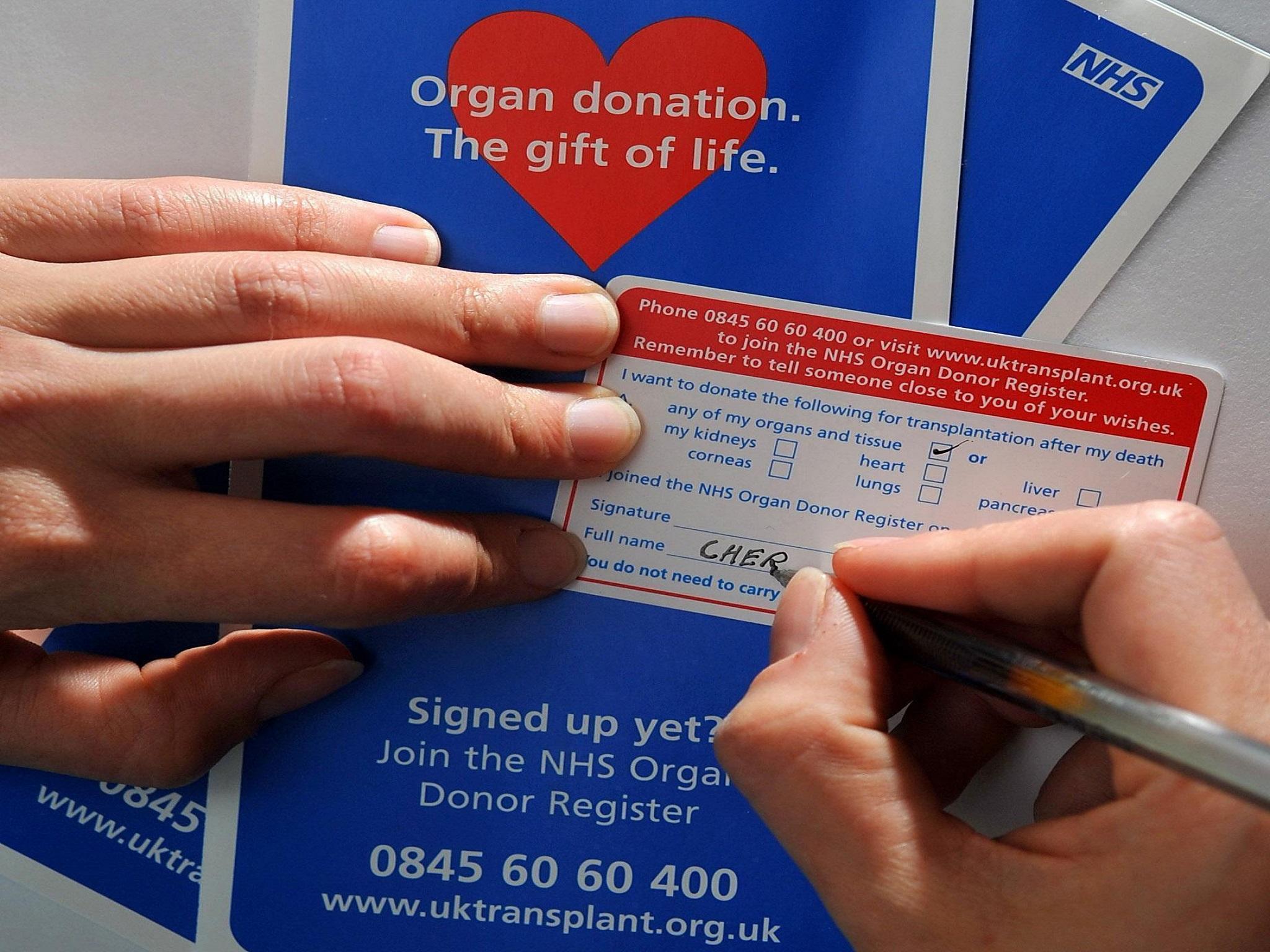Obesity and old age blamed as organ transplants fall despite record number of donors
'Somebody who is kind enough to think about donation... but we find the liver is already affected by fatty liver disease and we aren’t able to transplant it'

Your support helps us to tell the story
From reproductive rights to climate change to Big Tech, The Independent is on the ground when the story is developing. Whether it's investigating the financials of Elon Musk's pro-Trump PAC or producing our latest documentary, 'The A Word', which shines a light on the American women fighting for reproductive rights, we know how important it is to parse out the facts from the messaging.
At such a critical moment in US history, we need reporters on the ground. Your donation allows us to keep sending journalists to speak to both sides of the story.
The Independent is trusted by Americans across the entire political spectrum. And unlike many other quality news outlets, we choose not to lock Americans out of our reporting and analysis with paywalls. We believe quality journalism should be available to everyone, paid for by those who can afford it.
Your support makes all the difference.Soaring obesity rates and an aging population are causing a fall in the number of organs available for transplant in the UK despite more donors than ever before, official figures show.
A record 1,600 people donated their organs after they died in 2018/19, saving the lives of 3,941 transplant recipients, according to the NHS Blood and Transplant (NHSBT) report.
This shows efforts to convince people to discuss their wishes to be a donor with loved ones are paying off, NHSBT said.
However, the overall number of transplant procedures fell from 4,038 in 2017/18 to 3,951 last year because of the changing nature of the UK population.
The average age of donors has increased, with 38 per cent now over 60 - compared to 26 per cent in 2009 - while the number of obese donors rose from 24 to 29 per cent.
This can mean that while the deceased is willing to be donor, some or all of their organs may not be suitable, Professor John Forsythe, medical director for organ donation at NHSBT told The Independent.
"We find on occasions that somebody who is kind enough to think about donation, we might still be able to allow kidney transplantation, but we find the liver is already affected by fatty liver disease and we aren’t able to transplant it," he said.
"It might be a strong enough organ to maintain that individual, but once you have to remove it and keep it on storage and then transplant it, it tests the organ to a much greater extent."
Hearts of older donors are less likely to be suitable for transplant and higher rates of cancers and other conditions as we age can also make organs less viable.
Experts have also warned obesity is creating a liver disease "timebomb" which could increase need for transplants in the first place.
"We now have more successful drugs for hepatitis C, and that’s reducing as a demand for transplants, [but] obesity and fatty liver disease is rising as a cause," Prof Forsythe added.
The overall number of transplants fell by 2 per cent, from 5,104 to 4,990, with a 1 per cent increase in numbers of people on the transplant waiting list.
Some of this may also be due to logistical demands of organ donors being in the wrong place. The long running decrease in the number of patients dying after car crashes and other accidents is also a factor, as this group tends to be younger.
However, the Organ Donation and Transplantation Activity Report said the overall story was one of success, with a 67 per cent increase in deceased organ donors and a 49 per cent increase in deceased donor transplants over the last decade.
One of the 3,951 people who benefited from a life-transforming lung transplant in 2018/19 was 24 year old, Charles Michael Duke, a singer and songwriter born with cystic fibrosis.
"By the time I received my transplant, I had been unable to sing and perform on stage for four years," he said. "My whole life was effectively put on hold. It is impossible to put into words, the feelings that I have for my donor."
Just a few months on and he is due to be starring as Judas in a production of Jesus Christ Superstar.
"They have given me a second chance and given me back the opportunity to life my life to the fullest," he said.
Mr Michael Duke was one of the voices campaigning for England and Scotland to introduce an opt out system for organ donation, following the example of Wales in December 2015.
Wales now has the highest consent rate in the UK - 77 per cent, up from 58 per cent in 2015.
Experts hope that once the law change comes into force next year and public awareness increases, similar increases will be seen in England and Scotland.
During 2018-2019, 408 patients died while on the transplant waiting list or within one year of being removed from it.
The total number of patients whose lives were potentially saved or improved by an organ transplant fell by 2 per cent to 4,990.
There was no change in the number of kidney transplants, but pancreas, liver, heart, lung and heart-lung transplants all fell.
Join our commenting forum
Join thought-provoking conversations, follow other Independent readers and see their replies
Comments